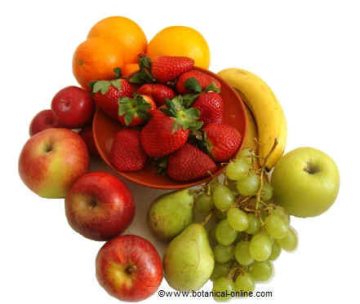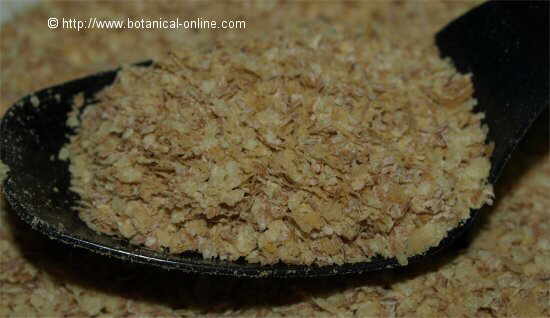Contents
- 1 Properties of sugar for health
- 1.1 What benefits does sugar bring to the body?
- 1.2 What do we call sugar?
- 1.3 Importance of carbohydrates for health
- 1.4 Does sugar have any beneficial properties?
- 1.5 Sugar is a natural tranquilizer
- 1.6 Sugar, the brain’s food
- 1.7 Sugar-free diets and poor school performance
- 1.8 Problems caused by excess sugar
- 1.9 Contraindications of sugar
Properties of sugar for health
What benefits does sugar bring to the body?
Sugar is essential to nourish the nervous system, because neurons only feed on glucose, a type of sugar.
In times of stress, sweeten the tea.Chinese proverb
What do we call sugar?

When you talk about sugars, you think of sweeteners, such as table sugar or honey. But in the diet there are many other types of sugars, which in diet are called carbohydrates.
Examples of carbohydrates are: the starch found in tubers and cereals, the fructose found in fruits, or the fiber found in vegetables. They are all examples of natural carbohydrates.
Importance of carbohydrates for health
Natural sources of carbohydrates are of great importance in human nutrition since they provide the most energy in the diet. These foods have the following benefits:
- Energy function: They are easy to digest and provide energy of excellent quality to the body.
- Prebiotic function: They are fermentable and therefore favor the growth of beneficial intestinal bacteria for the organism (prebiotic effect).
- Energy reserve function: The body has carbohydrate stores in the muscle and in the liver that it can use in an “emergency”. That is, when you have to flee from danger, or if there is no food (eg. overnight or on long fasts).
Does sugar have any beneficial properties?

The properties of foods naturally rich in sugar are different from those of those products that have been sugary. The composition, nutritional value and properties of products with added sugar are very different from those of foods naturally rich in sugar or starches.
Sugar is a natural tranquilizer
Consuming sugar can have a calming effect on the nervous system, calm anxiety and tension, and induce sleep.
In addition to its purely energy function, scientific studies have shown that certain amounts of sugar can act as tranquilizers. For example, in one study, 2 and a half tablespoons of sugar, or 50g of candy, had calming effects. According to the same source, these amounts should be slightly increased in overweight people.
Sugar, the brain’s food

Sweet is the first taste consumed by man, through breast milk, which makes it an instinctively healthy taste. Plants have taken advantage of this circumstance by producing sweet fruits, which men gladly collect to feed ourselves, at the same time as we disperse the seeds of the plant, obtaining a mutual benefit for both species.
Sugar is an essential nutrient for brain function, which cannot use fats or proteins as an energy substrate (only in extreme cases can it feed on fats, but it is not a normal or advisable situation to provoke).
It is no coincidence that man is a very intellectual animal, that the main food for neurons is sugar (the glucose that circulates in the blood), and that breast milk is rich in sugar (babies develop language before starting to walk): the sweet taste is a primary flavor with a lot of meaning. The same is true of erythrocytes, specialized cells in the blood that carry oxygen: they only feed on glucose.

Sugar-free diets and poor school performance

Children who do not eat carbohydrate-rich foods for breakfast have more concentration problems and a higher risk of school failure. Some foods rich in sugar are: raisins, oatmeal porridge, apple porridge, porridge, rice pudding, baked apple, fruits, etc.
However, eating sugary products or too much sugar (added sugars) can lead to over-excitement, hyperactivity, and later drowsiness or feeling hungry again.
In addition, foods with added sugars decrease the B vitamins, necessary for study, memory and concentration. An improper diet can hinder school performance for these reasons.
Therefore, in the diet to study it is recommended to avoid foods with added sugars and to consume foods with natural sugars, such as fruit salad, fruit skewers, dried apricots, potatoes, sweet potatoes, rice, oatmeal flakes, applesauce, etc.
Problems caused by excess sugar

In the short term, sugars are known to cause tooth decay, which does not usually have major health complications, except for aesthetic and dental problem that could be caused by losing a tooth while smiling.
The real problem of excessive consumption of sugars is the disproportionate increase in the so-called “chronic and non-communicable diseases“, which are: overweight, diabetes, childhood obesity, hypertension and high cholesterol. These affectations are the cause of many deaths from heart disease.
Contraindications of sugar
People with overweight or diabetes should not take sugary products, but neither should healthy adults or children, because these types of products are usually not healthy. Vegetable foods, such as fruits (watermelon, medlar, guava, dragon fruit, kumquat, avocado, mandarins, pineapple, etc.) should be promoted and the consumption of vegetables (broccoli, carrots, etc.) should also be promoted.
Foods with complex carbohydrates, which gradually break down into sugars, should be taken in less quantity during digestion. These foods are mainly: whole grains and legumes.
In order not to give up the sweet taste, you can occasionally resort to natural sweeteners such as stevia, but foods with added sugars such as cakes, candies, pastries, refined sugar, etc. should be completely eliminated.
* Related information:
– Refined sugar vs natural sugar
![]() More information on sugar and sweeteners
More information on sugar and sweeteners








